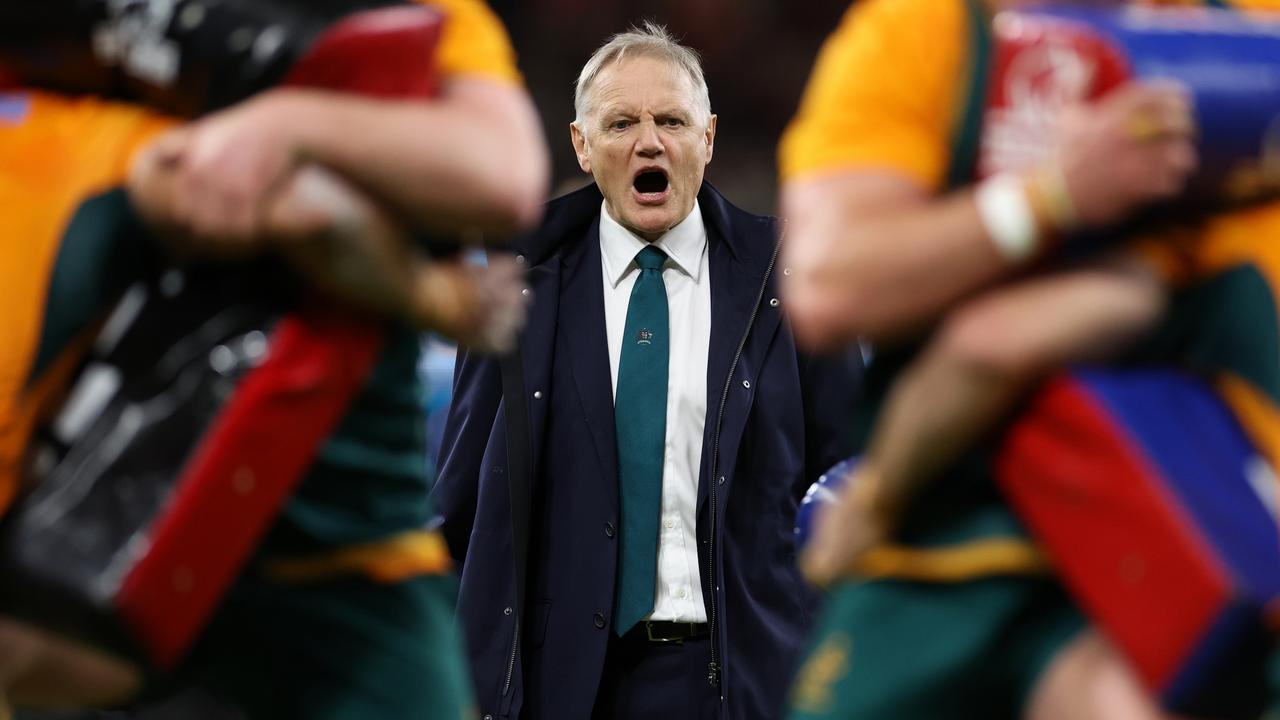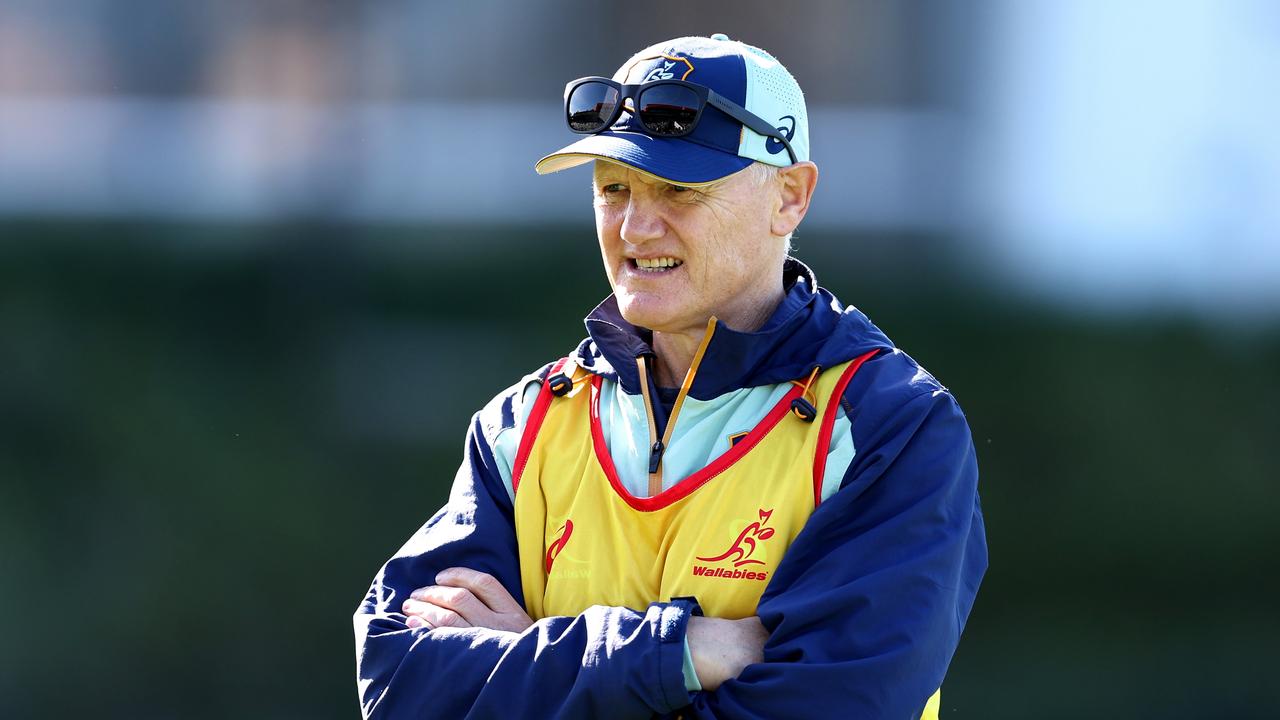Controversial race-based selection policy delivers South Africa rugby World Cup victory against England
The most controversial selection policy in the history of sport has delivered the ultimate prize.
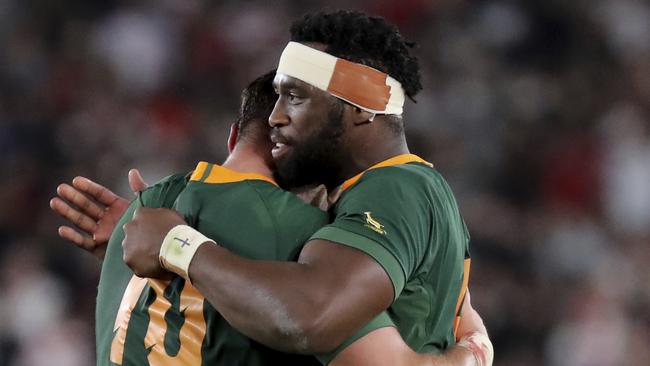
World Cup
Don't miss out on the headlines from World Cup. Followed categories will be added to My News.
This is not a story of sporting success.
It is the tale of the most controversial selection policy adopted by any team, anywhere, transforming a nation and uniting a country for generations to come.
South Africa. World rugby champions. With a government-mandated quota that half their team had to be black.
Some called it reverse racism. Many white players left the country in disgust.
Two years ago the Springboks lost to the All Blacks 57-0.
Who on that day could have predicted Siya Kolisi, the Springboks’ first coloured captain, hoisting the William Webb Ellis trophy in Yokohama on November 2, 2019?
Missed England v South Africa? Stream the Kayo Mini replay with KAYO SPORTS on your TV, computer, mobile or tablet. Get your 14-day free trial and start streaming instantly >
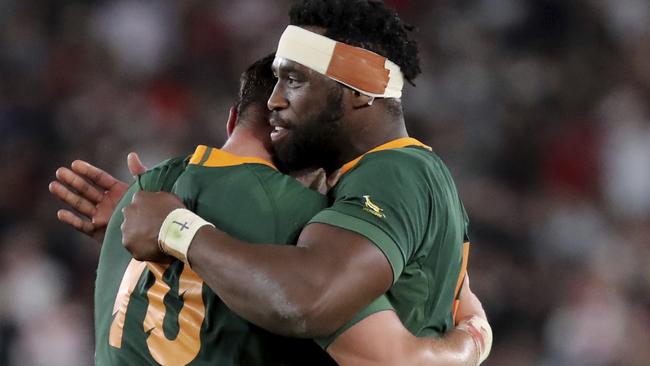
Likely not even Kolisi himself – who watched his country’s first World Cup victory in 1995 at his local tavern in Port Elizabeth because his family could not afford a television at home.
The young boy watched Nelson Mandela celebrating with Francois Pienaar, bringing together his nation that had emerged from an apartheid era where the Springbok jersey represented white supremacy.
By 2006, South African rugby was implementing a policy to have a minimum number of black players in their team to better represent the country – 80 per cent black, eight per cent white.
The coach at the time, Jake White, said he was prevented from picking white players he wanted for his World Cup squad because of the “transformation” policy. Nevertheless, he masterminded South Africa’s second World Cup victory in France, with two black players in his final match-day squad.
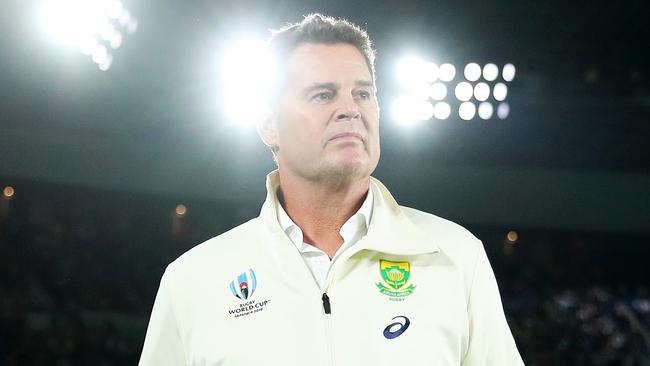
Then came coloured coaches, Pieter de Villiers and then Allistair Coetzee. Rassie Erasmus was appointed as the Springboks’ first director of rugby in 2017, overlooking Coetzee.
After a disastrous season including that record loss to New Zealand, Erasmus took over as coach.
One of the first things he spoke of was transformation.
The directive was to have half of the Springboks team coloured by the 2023 World Cup in France.
Yet the rapid development of black players through the Super Rugby system prompted an acceleration of that edict to ensure 50 per cent of players in squads throughout 2019 were black.
Instead of despairing at the request as a hindrance, Erasmus embraced it and appointed Kolisi as his captain in 2018 – against England.
Kolisi courted controversy from his own kind earlier this year when he said Mandela would not have approved of the quota system.
"I would not want to be picked because of my skin colour because that surely would not be good for the team,” Kolisi said, much to the displeasure of his government.
After being crowned world champions in Japan, Kolisi took a pause, calmed his thoughts with a breath, and said: “We can achieve anything if we work together as one.”
Originally published as Controversial race-based selection policy delivers South Africa rugby World Cup victory against England


